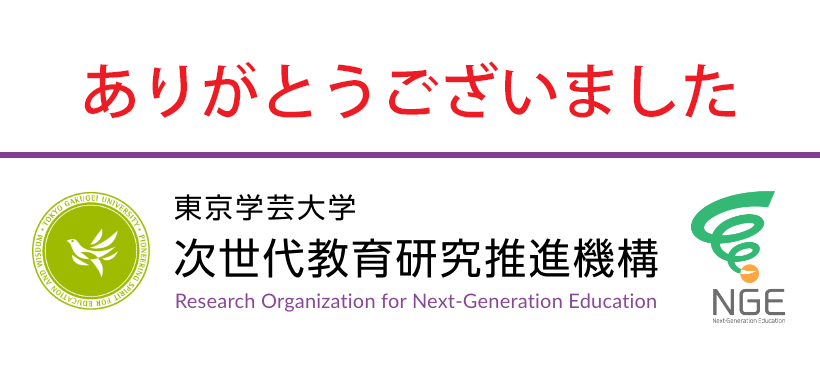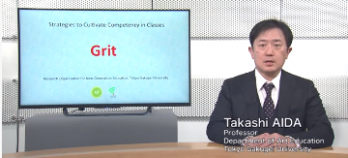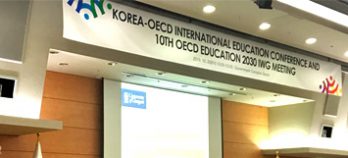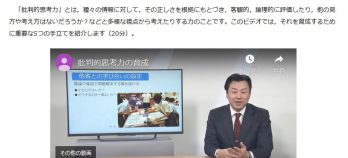NEWS & EVENTS
List of news and events21CoDOMoS and PDCoBal will be discontinued on March 31, 2026.
21CoDOMoS and PDCoBal will be discontinued on March 31, 2026. We apologize for any inconvenience this may cause and appreciate your understanding. We would also like to express our sincere gratitude for your patronage over the years.
2025/09/22

“Strategies to Cultivate Competency in Classes” New Release
We are proud to announce the release of two new videos “Problem-solving” and“Grit” in our “Strategies to Cultivate Competency in Classes” series that explains how to foster student competencies using examples from actual classroom lessons.
2020/03/31

The 10th IWG OECD Informal Working Group Meeting (IWG) was held
The 10th IWG meeting for OECD The Future of Education and Skills 2030 Project was held during October 23rd, 24th, and the 25th of 2019 at Ilsan and Seoul, Korea. Professor Matsuo Naohiro and Specially appointed lecturer Hasegawa Yuka from NGE attended the meeting.
2019/11/07

Videos explaining competency development were released
As a outcome of our project, we have just released the following two videos: Video narratives that illustrate the concepts of OECD Learning Compass 2030, and “Teaching Strategies to Cultivate Competencies in Classes” instructional videos.
2019/10/04

What we do
The Research Organization for Next-Generation Education carries out research on how to foster and evaluate student competencies in elementary and junior high school subject lessons.
You have probably heard the phrase “the period of VUCA”. VUCA is an acronym that stands for Volatility, Uncertainty, Complexity, and Ambiguity. It is used to describe the “volatile, uncertain, complex and ambiguous” world we are about to enter. When we look around in our own society, we can certainly spot many trigger points for VUCA such as heightened exchanges and frictions that result from globalization, environmental problems that threaten our planet’s survival, and progress in technological innovations represented by Artificial Intelligence (AI).
To thrive in a VUCA world, individuals must be able to use their knowledge and skills for learning, thinking, and collaborating with people from different corners of the world and all walks of life for tackling complex problems that do not have a formulaic answer in various domains of work and everyday life. The capability that these people can demonstrate beyond the knowledge and skills they possess are called “competencies”.
What can schools do and how should they help their students acquire competencies? What kind of visions should schools have and from what perspective should they envision to push education forward? Our project has conducted various research and fine-tuned practices by asking these questions with the objective to understand “how we may foster and evaluate student competencies through elementary and junior high school subject lessons”. This project will continue to build on past achievements both in quality and quantity to support education practitioners by providing the knowledge and information they need.








